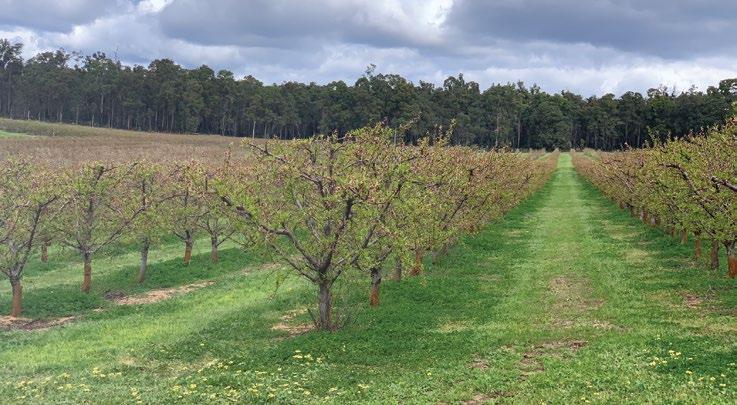
2 minute read
Horticulture Liaison Officer
3. Implement national systems that support market access:
Providing markets confidence in our fruit fly system and allow growers to capitalize on our reputation of quality produce. 4. Facilitate a cooperative and committed national approach to fruit fly management:
Advertisement
Cooperation across governments, industries and communities is vital to the success of the fruit fly system.
Priority Areas
1. Market access 2. Management of established fruit fly 3. Prevention, preparedness and response 4. Research 5. Surveillance 6. Diagnostics 7. Communication and engagement 8. Cooperation The National Fruit Fly Council will be responsible for overseeing the Strategy and they have developed an Implementation Plan for 2020–21 to help monitor and report to stakeholders on progress.
Lloyd Klumpp, Chair of the National Fruit Fly Council, said the anticipated release of the strategy in September was a tool for the Council’s broader objectives.
“The National Fruit Fly Council is tasked with overseeing the implementation of the strategy; however our strength lies in the contribution that every individual and every organisation makes to combating the fruit fly in Australia”. ●
MORE INFORMATION
Visit www.preventfruitfly.com.au where you can also sign up for a monthly fruit fly e-newsletter.
BY SHAY CROUCH VALUE CHAIN FACILITATOR, STONEFRUIT WA
Industry has come together with the Department of Primary Industries and Regional Development (DPIRD) to provide the Biosecurity Horticulture Liaison Officer project.
Producer committees for Pome, Citrus, Stone and Carnarvon Banana have joined forces and are set to reap the rewards of this project over the next 12 months. The role has been split into four part-time positions, to service each industry accordingly, with the stonefruit officer acting as the project lead. The project has come about due to the increased frequency and severity of biosecurity events in WA and industry are wanting to increase their preparedness. With work starting in spring 2020, the stonefruit industry is looking to achieve the following: • An improved industry understanding of the costs incurred from a biosecurity incident, e.g. the Citrus
Canker incident, • A list of priority pests for the industry, • A factsheet on the current state border practices, • A set of guidelines for when a biosecurity incident occurs, where to start and how to go about it, • A comprehensive update on current surveillance activities in WA. This information will better place the industry for future biosecurity incidents, identifying existing gaps, and further resourcing requirements. The project will be achieved with industry engagement, with communications including presentations, information factsheets, and reports. We hope you can provide guidance and participate in the project where appropriate and that the industry is more prepared for exotic pest incursions once it is concluded.
The committee will also review the project as it progresses to establish its effectiveness and if there is an opportunity to continue the project if there is a need. ●
MORE INFORMATION
For more information contact Shay Crouch, or Bronwyn Walsh as the project Manager at










